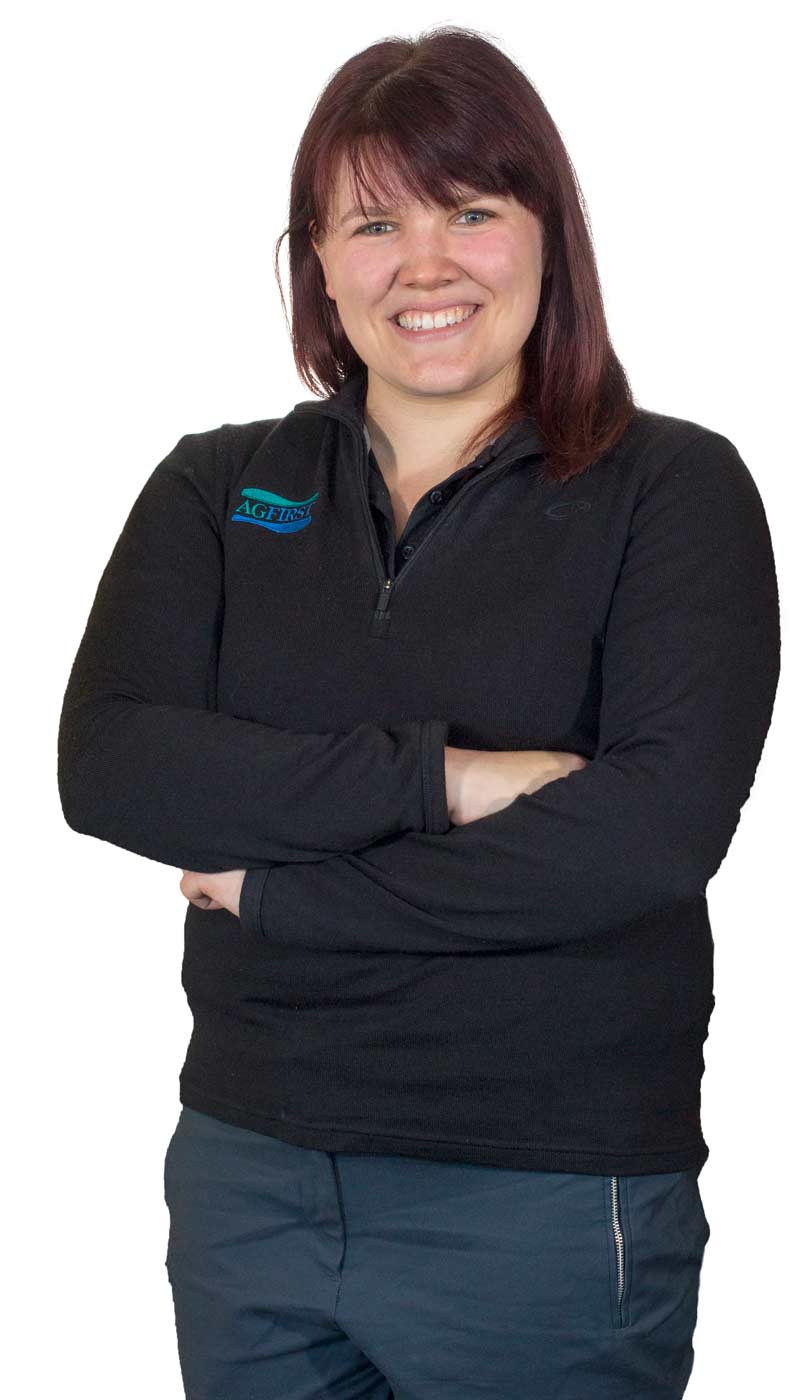family background / Yvette grew up traveling around the globe with parents David and Fiona Jones, who work in food technology. She majored in horticulture and is passionate about applied food sciences.
age/23
grower/Nelson, New Zealand
crops/Apples, pears, kiwifruit
business/Horticulturalist
 How did you get your start?
How did you get your start?
I’m not from a traditional rural background — I’m not off a farm. My family is actually involved with aquaculture, farming mussels in the ocean.
Before I went to university I was based in the Bay of Plenty in the North Island of New Zealand. When I was there, a fungal bacterial disease landed in the country decimating the kiwi crop.
I have memories of being on the school bus, watching as orchards were being pulled out, and my friends who were involved with the orchards had to move away.
The more I thought about it — I wanted to learn how to solve these types of agricultural issues.
I love problem solving, biology, chemistry and physics in high school so I thought horticulture would be a really good way for me to study the sciences in an applied way and make change. Agriculture and horticulture is the backbone of New Zealand.
What are the New Zealand growing regions like?
The great thing about New Zealand is the latitude and longitude exhibit a diverse amount of climate regions that are suitable for a lot of crops.
There’s a lot of stone fruit grown on the South Island. Then in Nelson, in the middle of the country, the climate is a bit more mild and we can grow a lot of pipfruit and kiwifruit.
Then we have areas in the North Island where we’ve got fertile volcanic soils that are very warm, so we can grow a lot of vegetables and Pacific island tropical fruits.
We have many different microclimates and soil types that give growers many options about what they want to plant.
What did you focus on in college?
One of my reasons for studying applied science like horticulture was because it allowed me to use the sciences and key concepts in my job.
After high school I chose to get a degree in agricultural sciences, majoring in horticulture at Massey University in the North Island.
At the time, it was the only place where I could study horticulture. One of the great things about my degree is that about one-third of the papers were ag business based — so I learned a lot about value and supply chains, logistics, precision horticulture and irrigation planning.
Describe your career path.
One of the parts of my degree was a compulsory summer growth partnership program, which is an initiative with the government and universities that focuses on increasing the value of the Mānuka (tree) honey industry.
That summer I went around New Zealand, clamoring up hills, taking samples and looking for honey with the highest sugar content. Learning these skills was a great stepping stone for me to learn research skills.
When I started at AgFirst, one of the first things I did was work on a study looking at the variability of crop estimates.
I got to work with technology, learning whether it would provide accurate data, talk with growers about their crop estimates and how we can improve results — ultimately helping New Zealand better understand how much fruit is out there and how it would affect various markets.
What advice do you have for younger growers?
One of the challenges of being in horticulture is being young, but also being a young woman. In the horticulture industry it’s pretty common for me to be standing in a field talking to other growers and being the only one in the crowd that looks like me.
I think having confidence in yourself and in what you’re doing will make you more confident when working, speaking and presenting data.
Just talking one-on-one with other growers, I think young people need to stick to their guns. You know what you’re doing.
The whole point is that we’re in a stage in our careers where we are learning — and I think many of the older growers are accepting of that. If we ask questions or make mistakes along the way — that’s totally OK.
My tips would be to grow your confidence in what you’re doing, find your passion and believe in yourself.
– by TJ Mullinax






Leave A Comment